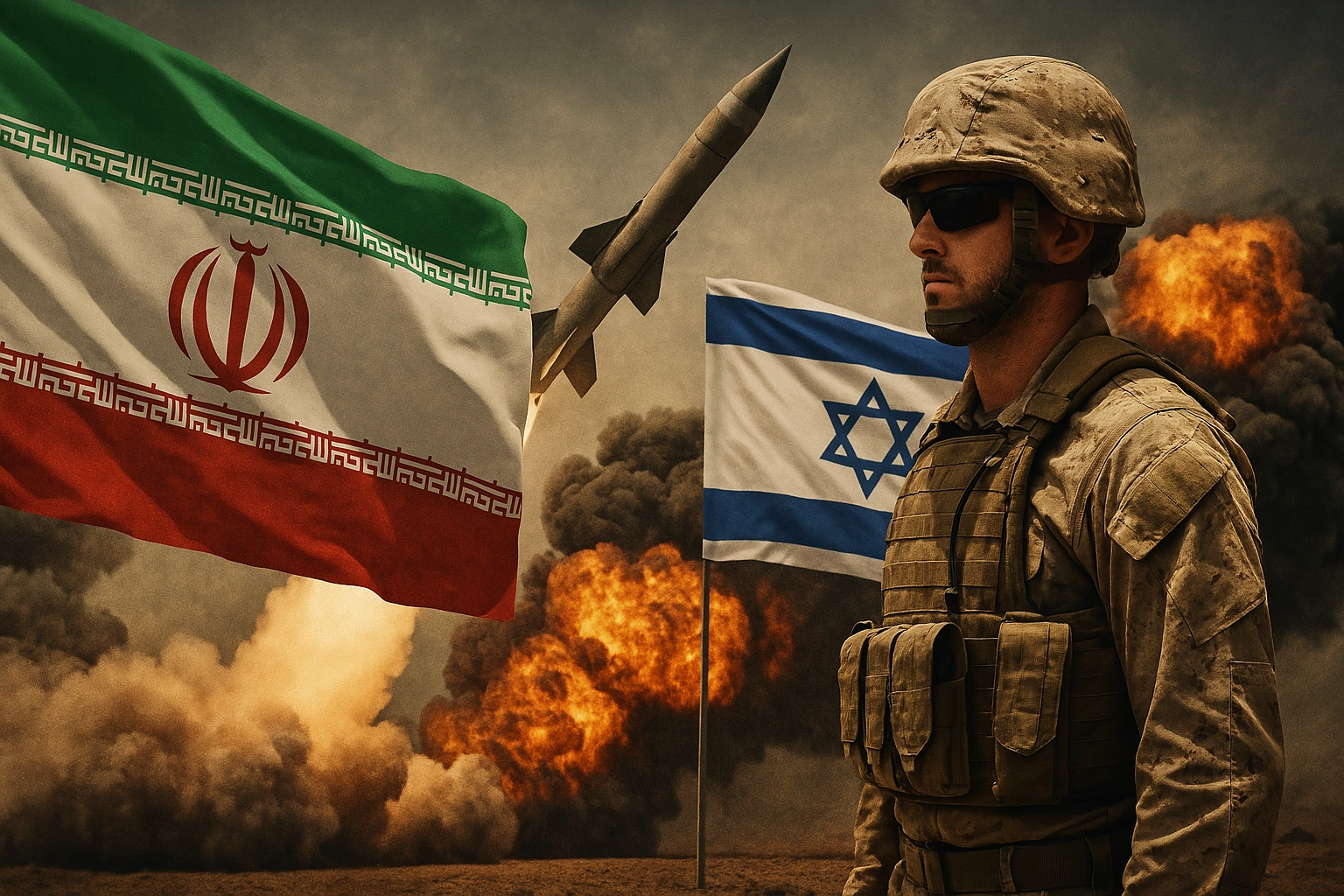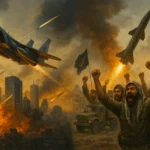With the twelve-day war that Israel and the United States US had declared against Iran, it has been clearer that there was more to this war than a reactionary military affair, but it was just a cut out of a larger geopolitical agenda. This is a war disguised as owning to the need of security and non-proliferation, yet it was not about nuclear weapons but rather about who will keep dominating. The current American foreign relations with Iran are now seen as mere disguise, to reverse storytelling and get some time as they position to fight. Israel in turn got two advantages out of this brief, yet bloody little war, two things that government never has enough of, a distraction of world interest in the continued genocide in Gaza, and another distraction in the increasing attention attracted to the shifty American/Israeli aid camps. Several reports have noted that such camps have been engaging the terrorist militia groups including extreme groups such as ISIS to make the image of humanitarian intervention even more complex.
American scholar Jeffrey Sachs threw some historical light on the conflict because since Israeli Prime Minister Benjamin Netanyahu has been advocating the destruction of Iraq, Syria and Iran since 1995. This was a wider plan said Sachs to neutralize Hezbollah and Hamas and take off their main sympathizers. The invasion of Iraq by the United States under the deceitful banner of weapons of mass destruction was an obvious action in this series of sanctioned military action. The case of the present war, then, cannot be interpreted only as a response to the Iranian behaviour but as an imperialistic heritage one, which attempts to punish a mean that does not give itself up to the geopolitical dominance of America.
The Roots of American Hegemony
The past needs to be analysed to get an idea about the present. The US became a world superpower at the end of World War II when the rest of its economic and industrial enemies were reduced to rubbles. Having more than 45 percent of the global wealth at its disposal not to mention having no enemy present in the Western Hemisphere, the US was in an overpowering position like it had never been before. The domination of the Pacific and the Atlantic Oceans and freedom of access to important resources and markets put it in the centre of a new global order.
And this rule was not underscored by peace but rather constant warfare. The institute of world order and Rockefeller foundation (1984) report recorded that during the period running between 1945 and 1999, there were 125 major conflicts happening mainly between the military. The report further revealed that 95 percent of all the military conflicts happened in the third world countries. Amazingly, the US and western allies had a hand in 79 percent of these wars. On the other hand, the Communist nations comprised 6 percent. The numbers reveal a very problematic reality: the US has achieved its global strength by intervening and destabilizing the Global South repeatedly.
The United States brushed aside its actions in Guatemala, Cuba, the Dominican Republic, Indochina, Chile, El Salvador and Nicaragua through the same rhetoric of that aired during the Iranian conflict — security threats, regime danger and democracy promotion. However, the true motives were economic and strategic interests and war turned into an expansion of the US corporate as well as military interests.
War as a Business Model
The economic vehicle of these wars is hard to forego. Following the 2003 invasion of Iraq, US companies, such as BECHTEL and Halliburton, who were long-standing allies of the national security establishment, received billions of dollars in reconstruction contracts. It is a very cynical model with massive profits that thrives on destruction and reconstruction, which is nothing but a very profitable model of war economy.
In 2020 alone, the Pentagon gave out the sum of 445 billion on defence contracts. A great number of these contracts were awarded to the companies belonging to the largest political donors in the United States, which generously contribute to the Democrats and Republicans. Such defence contractors and arms manufacturers, in their turn, contribute considerable amounts to the Congress members and their relatives whose earnings skyrocket during the times of war. The elite in America which are made up of a small number of billionaires and one thousand companies utilize institutions such as the IMF and the World Bank to impose its policies which are global in scope. This is very well engineered and highly guarded machinery of domination. The hegemony has not vanished completely yet despite the emerging new powers such as China which are setting about to challenge them, as the system in place continues to rake in a constant feeding supply of wars and interventions that mandate the defence outlays and overseas operations.
Iran as a Target for Regime Change
The two purposes of the new war of crippling the nuclear program of Iran and causing the regime change became evident when the Israeli Prime Minister Netanyahu called on Iranians openly to take over the Islamic Revolutionary Guard Corps (IRGC). However, this appeal did not resonate much in Iran even with that opposed to the current regime.
Indeed, the Tudeh Party of Iran, a left-wing political party that is among the oldest parties in the country was highly vocal against the Israeli/American aggression. The Tudeh Party was against such foreign intervention to bring about regime change, even though they had opposed the clerical regime of Iran since its very inception and had always faced fierce oppression at the hands of Iranian Government, being thrown in jails on several occasions. This brings out the most important difference: homeland demands of reform or revolution can never be related to that of foreign financed.
What the war has, however, done is to sound the alarm on internal reforms within Iran. The clear lessons that the IRGC and Chinese authorities need to learn in the conflict is to unite the country by addressing the grievances that have long been in existence in the country. The oil workers were expecting the reforms to include setting up the bans on the opposition parties such as Tudeh, granting political prisoners’ freedom and introducing laws that would safeguard against discrimination of women and minorities. It is only internal cohesiveness and democratization that would enable Iran to have a strong national front that will resist external attack.
Nuclear weapons were never the only reason of the war on Iran. It was all about American domination in the fast-changing world. As it interferes in different wars on the side of the military, the United States displays its true agenda: to dominate the markets, strategic regions and ensure the interests of an elite force. Israel, being a close ally, has a very important role to play in this bigger scheme.
However, experience has revealed that the might of force has boundaries. Global order is slowly changing following the resistance by Iran together with the increase of multipolarity in the world which is being catalysed by nations such as China and Russia. Unless the US can appreciate the need to move away its military hegemony to that of diplomatic pluralism, the former will not only lose its moral ground since its actions will no longer be appreciated but also lose its relevance in the emerging new world.







